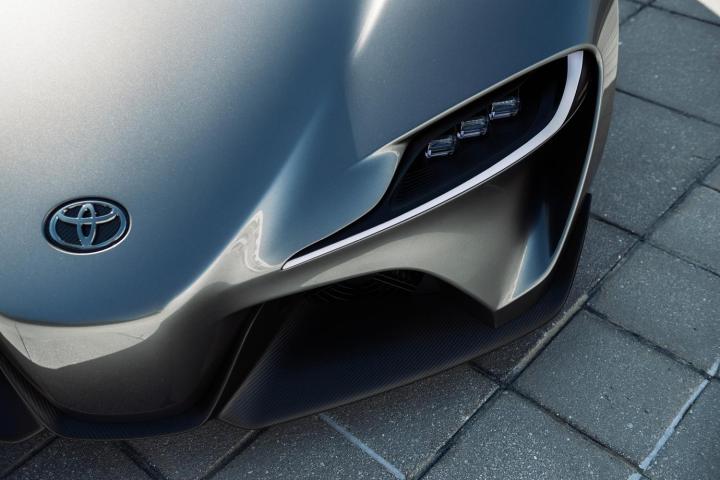
Yet while both companies have apparently done significant development work, a final decision on whether or not to advance the sports-car project to production has not been made, although it will be soon. Toyota expects the project’s fate to be decided before the end of the year, according to Automotive News Europe (subscription required).
“By the end of the year we will approve whether or not we will make it,” a Toyota spokesperson said on the sidelines of the 2015 Frankfurt Auto Show this week. Both carmakers have reportedly studied platform designs, but have not decided whether to green light the project yet. The platform is expected to be for a front-engined, rear-wheel drive sports car, which creates some interesting possibilities.
There’s already plenty of speculation about what will be produced if the new sports-car platform does get the green light. The dominant theory is that Toyota will build a successor to the Supra, possibly with styling inspired by the FT-1 concept that rocked the 2014 Detroit Auto Show. Meanwhile, BMW is expected to build a car to replace the current Z4, perhaps utilizing the twin-turbocharged inline-six from the current M3 and M4.
Even if the new Supra and Z4 don’t get approved, there could be other tangible results from the Toyota-BMW team-up. Toyota has been steadily developing hydrogen fuel-cell technology in advance of the launch of its 2016 Mirai, and BMW may be able to use some of that for its own production models.
The German carmaker demonstrated fuel-cell prototypes based on the i8 and 5 Series Gran Turismo earlier this year. Both cars had an estimated range of 300 miles, but neither was anywhere near production ready. BMW has not committed to any timeline for launching a fuel-cell car, but it has said that it hopes to have production-ready powertrain components by 2020.
After all of this buildup, cancellation of the sports-car project would be quite a heartbreaker, but in the face of stricter fuel-economy standards, it wouldn’t be surprising if both partners decided to emphasize efficiency over performance.
Editors' Recommendations
- The locations of over 2 million Toyota cars were exposed for 10 years
- Toyota is about to unveil a race car-like Supra concept inspired by the 1990s
- BMW recalls 257,000 cars to ensure owners can’t turn off the rearview camera
- Subaru and Toyota will keep working together to create sports cars and hybrids
- Toyota uses hydrogen fuel cells to power one of its Japanese factories


